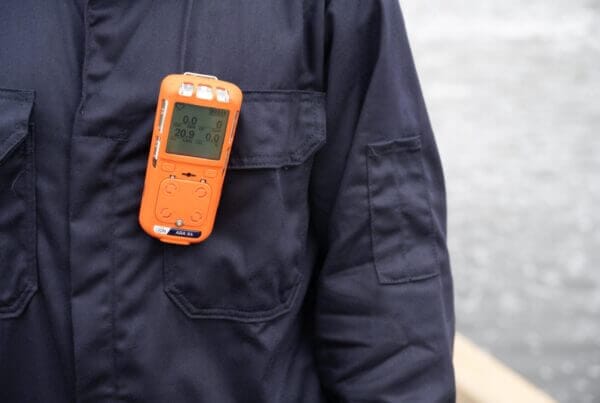
Asphalt production and benzene exposure: Protecting staff with a safety-first approach and PID technology.
In the early stages of the production of asphalt, and as a classified carcinogenic, managing exposure and minimising risk is critical for worker safety. ION Science, as a leading global OEM for gas instrumentation, has developed the only fixed detector on the market to specifically detect benzene, reducing the risk of exposure to workers, the public, and the environment.
Asphalt related products make up a great deal of the built environment – roads, pavements, and buildings all use asphalt in some form when it comes to construction. As such a prominent building material, the production of asphalt (also known as bitumen) is a global business. Benzene is often present at the early stages of the manufacturing process of asphalt, as it is derived from crude oil, a product with naturally occurring benzene.
High numbers of personnel are involved in the manufacture of asphalt all over the world, and protecting workers against benzene exposure risks is imperative for businesses. While some recommendations and laws exist, OSHA however does not currently have any legal requirements around asphalt fumes and preventative measures, beyond general respiratory and PPE safety. Laws exist around general emissions, VOCs, and carcinogens associated with asphalt production, however there is very little currently in place specific to benzene exposure.
With major infrastructure schemes such as the Road Improvement Scheme 2 (RIS2) in the UK, and Norway’s ambitious Route E39 coastal highway scheme (including an underwater floating tunnel section), asphalt will continue to be a critical ingredient of developing infrastructure. Businesses are looking to get ahead of the law changes now by using a ‘safety first’ approach and bringing in additional or updated benzene monitoring systems to their production facilities.
Even at low levels, benzene exposure can result in headaches, dizziness, breathing difficulties, and eye, skin, and respiratory irritation. Long term exposure, even as little as five years, can result in more serious conditions, including blood disorders, cancers, and pregnancy risks. Regardless of whether there are legal requirements in place, businesses must protect their staff appropriately against benzene exposure.
ION Science, as a leading OEM in the manufacture and development of PID (photoionisation detection) technology, has developed the only fixed detector on the market, specifically for the detection of benzene. The Titan is a specific fixed gas detector designed only for the monitoring of benzene. This makes it the perfect choice for use in asphalt manufacturing plants, where benzene is likely to be one of the most prominent VOCs (volatile organic compound) requiring management and monitoring.
As a fixed unit, the Titan can be installed at regular distances around sites, and with its ‘plug and play’ installation approach, the Titan can be left monitoring without the need for intervention. Two alarm systems can be set at the user’s convenience, and another two are pre-set relays for immediate warnings, so no exposure incident is ever missed.
The Titan offers continuous real-time data feedback of VOC concentrations in the air, taking samples every minute to an accuracy of 0.1ppm or +10%, whichever is greater. Using ION Science’s industry leading PID technology, the Titan is equipped with a 10.6 eV lamp that comes with a minimum one-year guarantee for performance. Servicing is only required every 6-12 months for the entire unit, making it an ideal choice for larger plants who need multiple units for wider-range monitoring.
Any manufacturing plant that handles asphalt production should look to install a Titan unit as part of efforts to protect workers from exposure.
Contact your local ION Science office today to find out more or fill out the form below and we shall be in touch.
To find out more about how ION Science can support with protecting staff with a safety-first approach and PID technology against benzene exposure in Asphalt production.
Please complete the form below and a member of our team will contact you shortly.







 United Kingdom
United Kingdom






